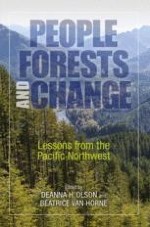2017 | OriginalPaper | Buchkapitel
9. The Emergence of Watershed and Forest Collaboratives
verfasst von : Rebecca L. Flitcroft, Lee K. Cerveny, Bernard T. Bormann, Jane E. Smith, Stanley T. Asah, A. Paige Fischer
Erschienen in: People, Forests, and Change
Verlag: Island Press/Center for Resource Economics
Aktivieren Sie unsere intelligente Suche, um passende Fachinhalte oder Patente zu finden.
Wählen Sie Textabschnitte aus um mit Künstlicher Intelligenz passenden Patente zu finden. powered by
Markieren Sie Textabschnitte, um KI-gestützt weitere passende Inhalte zu finden. powered by
